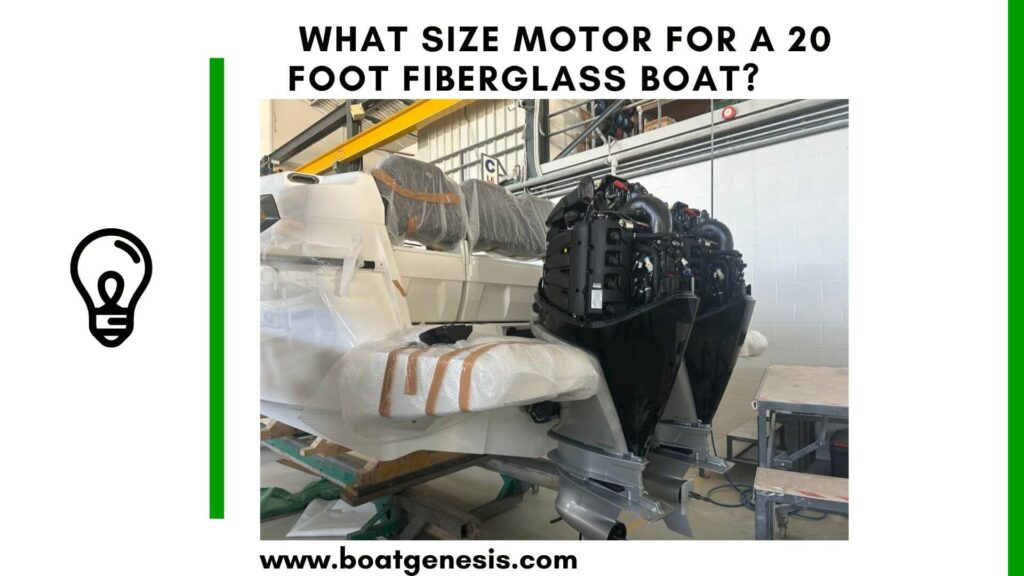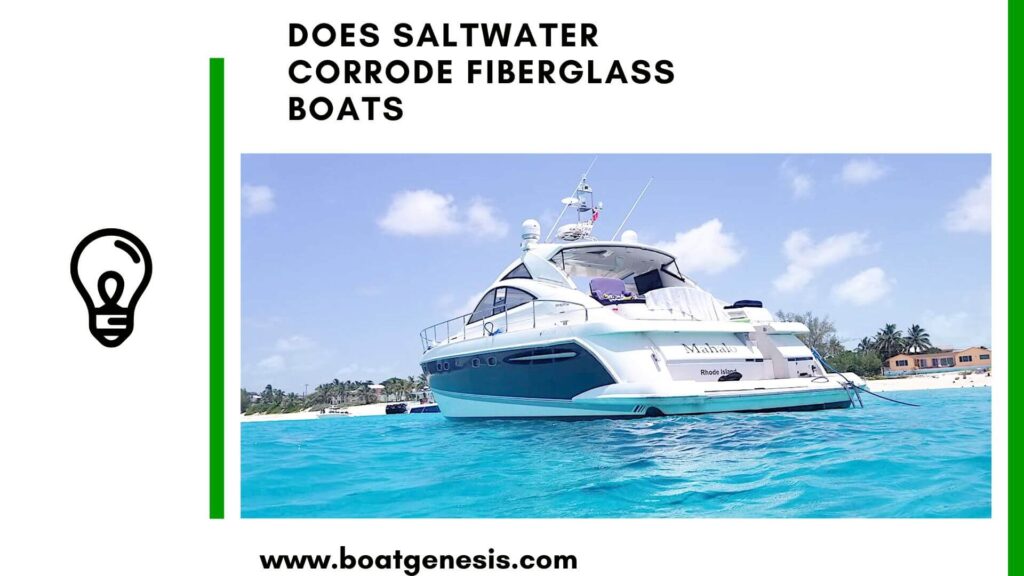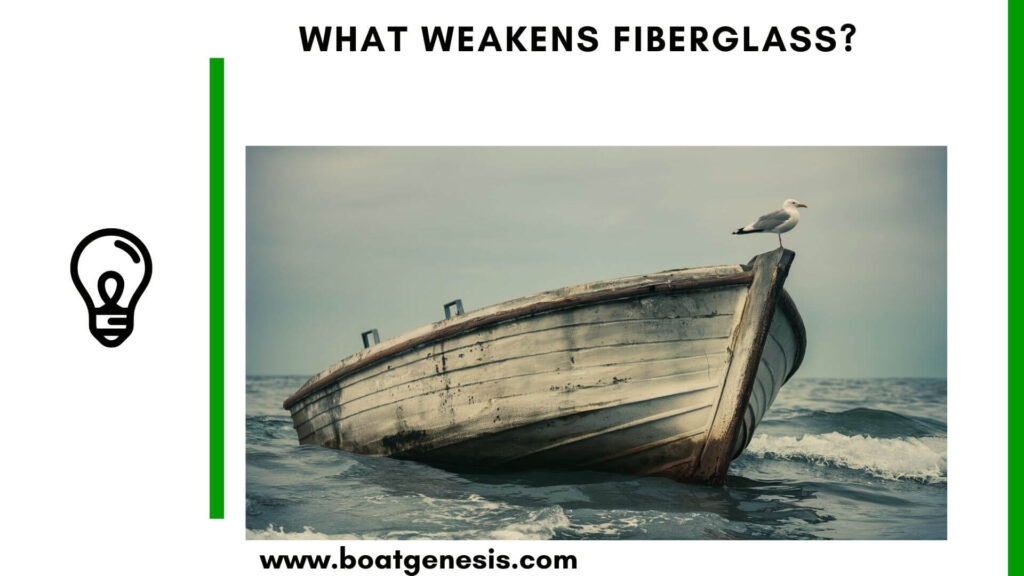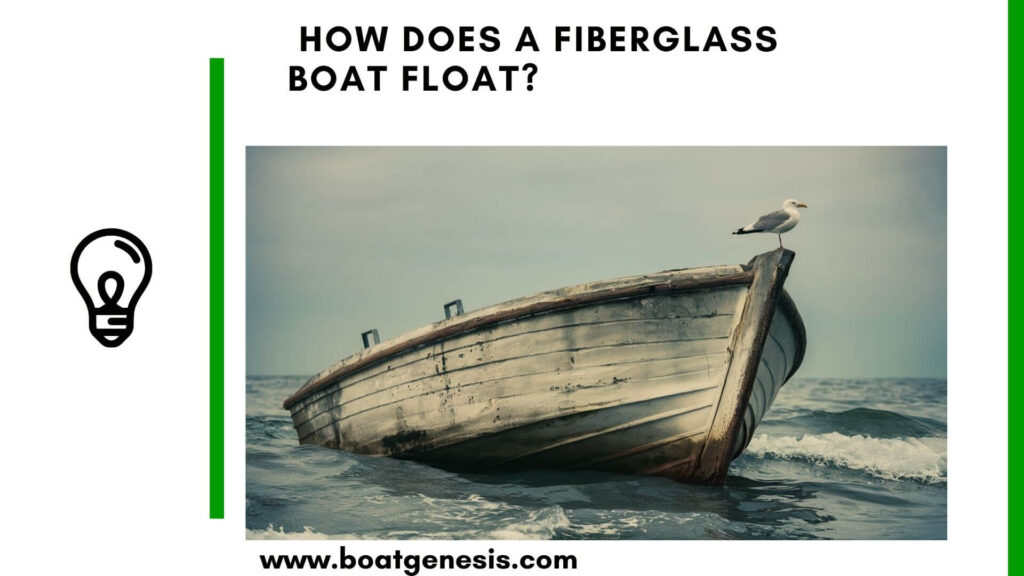When choosing the right motor size for a 20-foot fiberglass boat, the ideal motor is typically between 115 to 150 horsepower (HP). This range offers a perfect balance of power, speed, and fuel efficiency for various boating activities.
Understanding Horsepower Requirements
Selecting the appropriate motor size for your 20-foot fiberglass boat involves considering several factors such as boat weight, intended use, and local boating conditions. Here’s a closer look at these factors:
1. Boat Weight and Load Capacity
The weight of your boat, including gear, passengers, and fuel, directly affects motor performance.
Heavier loads require more horsepower to achieve optimal performance. A 20-foot fiberglass boat, which usually weighs between 2,500 to 3,500 pounds, pairs well with a 115 to 150 HP motor.
This ensures smooth handling and adequate power for different activities like cruising, fishing, or waterskiing.
Want to avoid costly fiberglass boat repair mistakes?
Learn how to inspect damage properly, decide when to DIY, and prevent expensive fiberglass problems before they start.
2. Intended Use
Your boat’s primary use will influence the motor size you need:
- Cruising and Casual Boating: A motor in the 115 to 130 HP range is typically sufficient for leisurely activities.
- Watersports and Fishing: For activities that require more speed and agility, a motor in the 140 to 150 HP range is recommended.
- Heavy Load Transport: If you often carry heavy loads or many passengers, leaning towards the upper end of the horsepower spectrum ensures better performance.
==>> Also read: What size motor for 14ft boat?
Importance of Motor Size
Having the right motor size not only improves your boat’s performance but also enhances safety and fuel efficiency. Underpowered motors can struggle, leading to higher fuel consumption and potential engine strain.
Conversely, an overpowered motor might be more than necessary, leading to unnecessary fuel expenses and maintenance.
Additional Considerations
Fuel Efficiency
While higher horsepower motors offer better performance, they also tend to consume more fuel. It’s essential to find a balance between power and fuel efficiency.
Modern outboard motors are designed with fuel economy in mind, so choosing a motor from a reputable brand with advanced fuel-saving technologies can be beneficial.
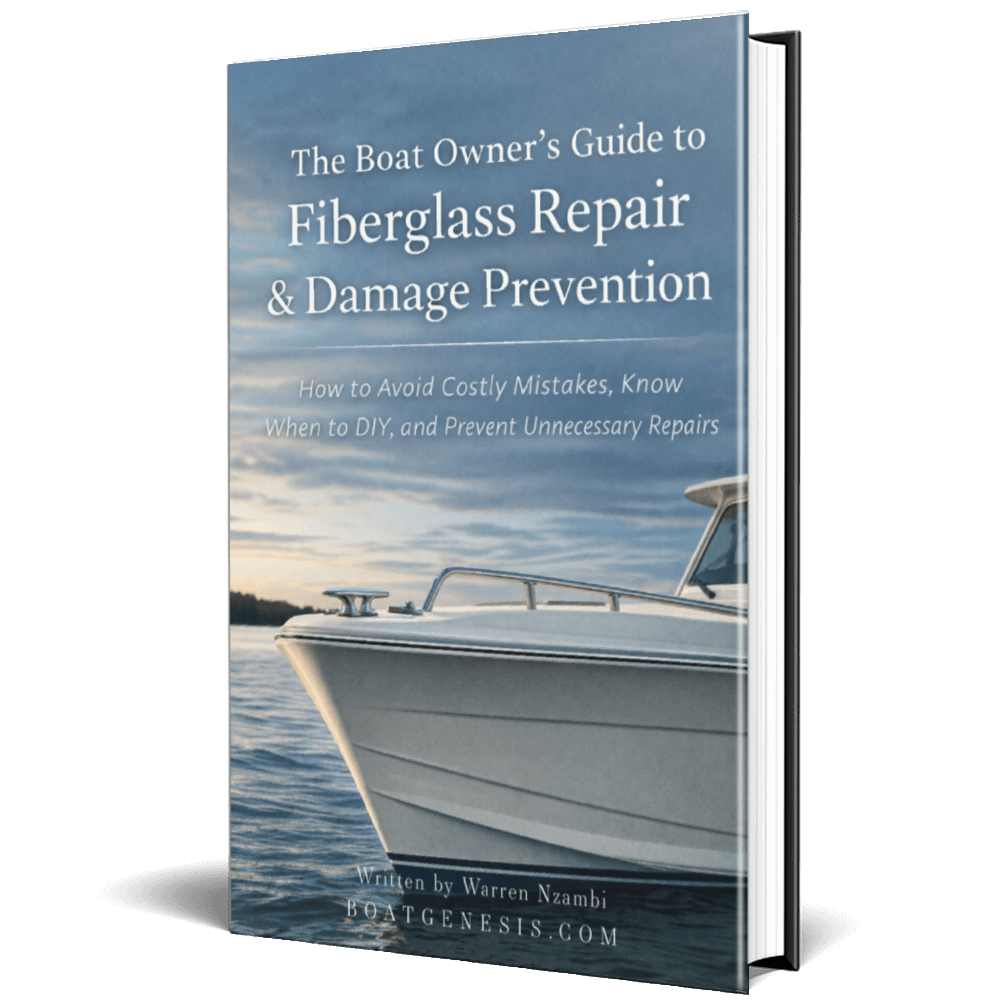
This guide helps boat owners understand fiberglass damage clearly — what matters, what doesn’t, and when repairs are truly necessary, so small issues don’t turn into expensive mistakes.
See What Every Boat Owner Should Know →Maintenance and Durability
Regular maintenance is crucial for ensuring the longevity of your boat’s motor. Opt for motors known for their reliability and ease of maintenance.
Reading user reviews and consulting with marine mechanics can provide insights into which motor brands and models are most dependable.
Noise and Emissions
Newer motor models are designed to be quieter and more environmentally friendly. Opting for a motor with lower noise levels and emissions can enhance your boating experience and comply with local environmental regulations.
Additional Insights to Consider
Here are additional insights to consider:
Weather and Water Conditions
If you frequently boat in rough waters or strong currents, you might need a motor with a bit more horsepower to navigate challenging conditions safely.
Conversely, if you primarily boat on calm lakes, you can opt for slightly lower horsepower without compromising performance.
Future Proofing
Consider future boating needs. If you plan to upgrade your boat or engage in more demanding activities, selecting a slightly higher horsepower motor can save you from having to upgrade in the near future.
Resale Value
Boats with well-matched, high-quality motors often have better resale value. Investing in a good motor can pay off if you decide to sell or upgrade your boat later.
Conclusion
Choosing the right motor for your 20-foot fiberglass boat is crucial for maximizing performance, safety, and enjoyment. A motor in the 115 to 150 HP range is ideal, but consider your boat’s weight, intended use, and local conditions to make the best choice.
By balancing power, fuel efficiency, and maintenance needs, you’ll ensure a smooth and enjoyable boating experience.

Warren is the founder of BoatGenesis and brings practical experience in fiberglass boat repair, marine equipment testing, and powerboat building. He has worked on a range of repair and restoration projects and now focuses on creating clear, research-based guides to help boat owners avoid costly mistakes and make smarter maintenance decisions. Learn more about Warren.

